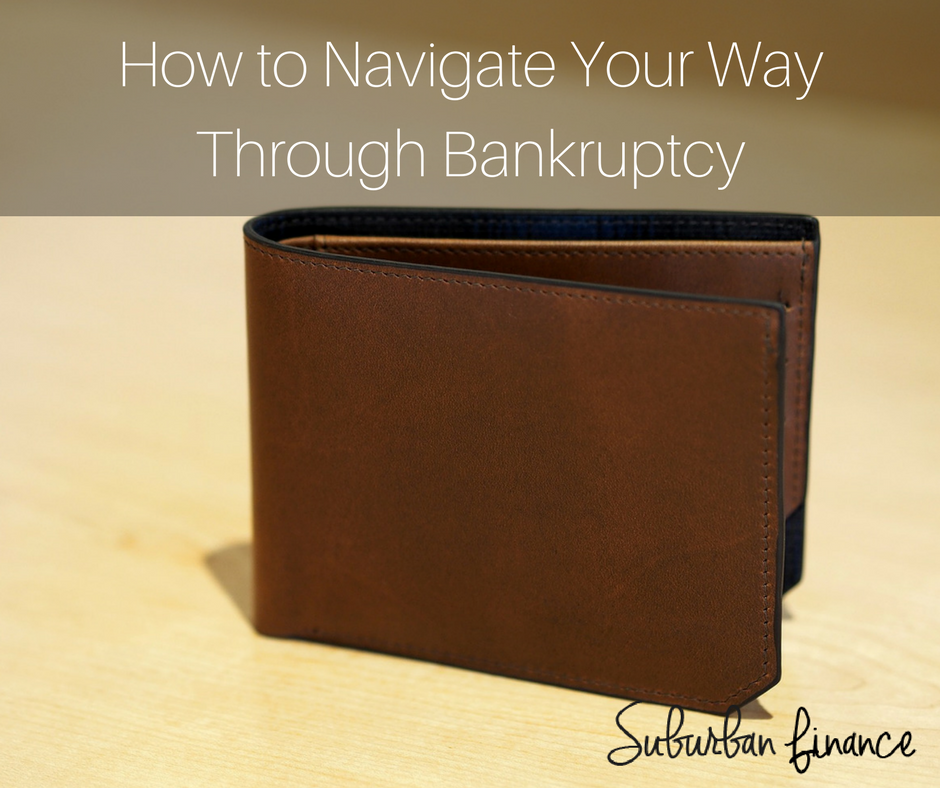I recently discussed how to navigate your way through bankruptcy, and now, I would like to share what you would need to do to get yourself bank in good standing with creditors. Filing for bankruptcy is not an easy decision, but it is meant to help us in extreme cases of debt. While it should only be looked at as a last resort, there is no shame in having to rely on it as long as you realize what steps you need to take to avoid this situation in the future. If you’ve had to choose this route to clean your slate, the good news is there is hope. Recover from bankruptcy with these tips:
A Quick Guide to Recover from Bankruptcy:
Get a Strategy in Place
As you begin the steps toward recovering from filing for personal bankruptcy, prepare yourself by having a strategy in place. If you met with a bankruptcy lawyer or attorney as mentioned in my previous article, you should consult with him or her on developing such a strategy. Otherwise, your strategy should include the following actions:
- Know what led you to declare bankruptcy in the first place. This will keep you from repeating mistakes (as long as you commit to preventing it from happening again, that is.)
- Put together a monthly budget. Those who have a budget in place are more likely to win with money. Even Dave Ramsey thinks so. If you want to know an efficient way to create yours, read this.
- Create a schedule for your bills. Have a calendar visible in your home throughout each month on which you mark when and what bills are due. If you can, you should try to automate your payments to really ensure that they are being paid on time. Remember, your credit report not only tracks your history but also your capability to make payments on time to creditors and bill collectors. Despite having bankruptcy on your record, you’ll be able to win back the trust of lenders by consistently paying your bills on time.
- Start building an emergency savings. You may be tempted to try to increase your funds by investing, a common recommendation for building wealth, but hold off until you have an emergency savings in place. This is one of the ways you’ll be able to provide yourself with some security in case something should happen.
- Eliminate unnecessary costs. I’m not saying you should live in a hole until you’re in good standing with creditors, but if you want to recover from bankruptcy, you need to recognize what expenses you have each month that are not necessary. Limit the number of times you go out and, if you need new clothes or merchandise, consider purchasing them used or up-cycled. Thrift shopping has become so much easier now with the power of social media. In fact, you can also sell some items you no longer need to pocket some extra cash, which can then go directly into that emergency savings fund.
Beware of Credit Repair Scams
Although it may be tempting, be leery of companies claiming they can quickly repair your credit, especially if they claim little to no obligations to you. They may offer to consolidate your debt and charge you fees that may end up costing you more in the end.
Elisabeth Leamy, the ABC News Consumer Correspondent, wrote in this 2008 article that nobody can erase negative entries on your credit report, which are not the same as credit mistakes. (Those you can fix yourself.) During the time the article was written, the recession was in full force and the Federal Trade Commission noticed a resurgence of credit repair schemes. These schemers still exist, so steer clear of the ones that especially promise they can fix your situation fast no matter the circumstance or try to charge you upfront.
Be Smart About Borrowing Money
A common myth that comes with bankruptcy is that you cannot get approved for any type of loan or credit card following this red mark on your credit record. While it won’t be as easy as it would for someone with a high credit score, you can still borrow money from lenders; you just need to be smart about it.
Opt for a secured credit card, which is great for those trying to rebuild their credit. Just remember to make your payments on time and pay off your balance each month. Bankruptcy Attorney Robert Weed recommends using it for regular expenses you would buy anyway, such as gas and groceries. He also advises to obtain a secured loan by your share savings account from your local credit union as a way to rebuild your credit, as long as they were not one of the lenders to whom you previously owed money. By doing this you pay interest on your own money, but it’s a great way to rebuild your score, he claims.
If you need to recover from bankruptcy, just remember that it is possible and there is hope; you just need to dedicate yourself to put yourself back in good standing and recognize negative spending habits that may put you down a bad path again.
Do you have any experience with bankruptcy? What tips would you add?
Jenn Clark is a writer, PR specialist, entrepreneur, blogger and coffee enthusiast. A lover of laughter, traveling and cheese, she’s written about her life experiences here at suburbanfinance while at the same time growing other young professionals. You can find more of her work at Jennblogs.co.


